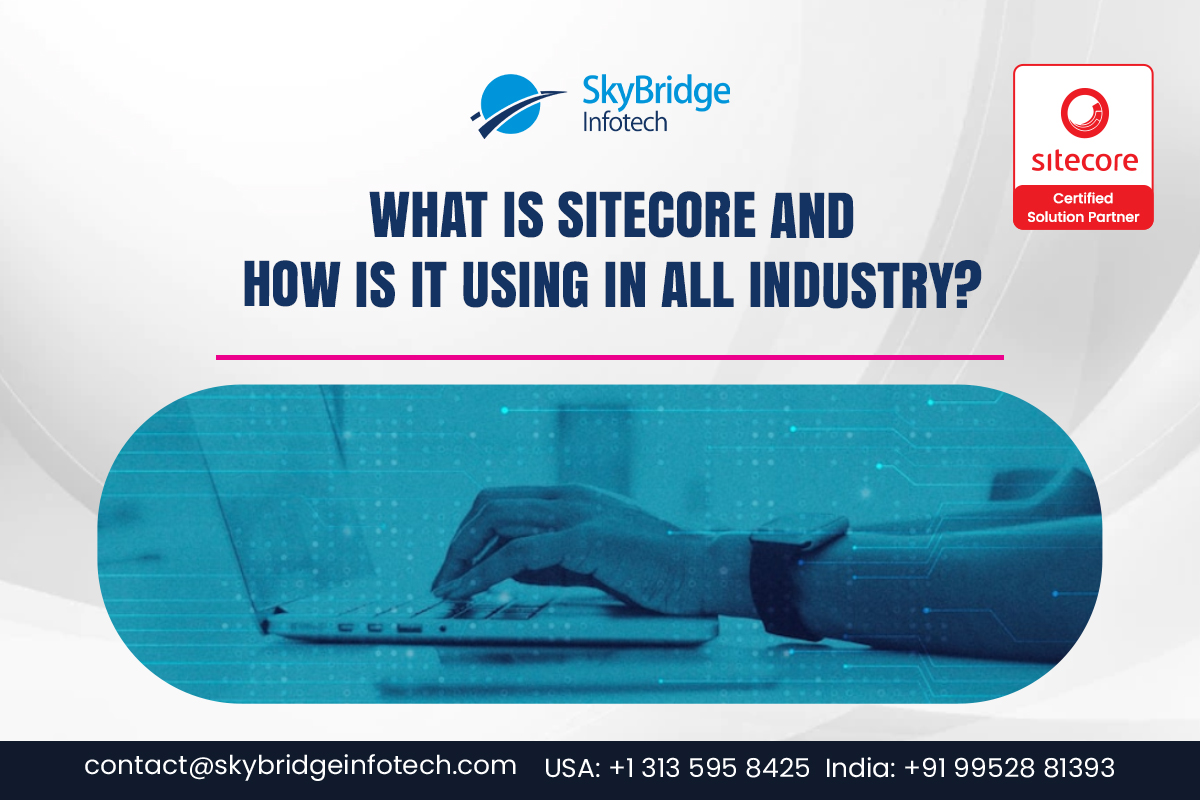Who is Sitecore and how is it using in all industries
Sitecore is a content management system (CMS) and digital experience platform (DXP) that helps organizations create, manage, and deliver personalized digital experiences across multiple channels, including web, mobile, and email. It is used by a wide range of industries, including e-commerce, finance, healthcare, and government. Sitecore’s features include content management, marketing automation, analytics, and personalization capabilities, which allow organizations to create and deliver personalized digital experiences to their customers, leading to increased engagement and conversions.
Sitecore has evolved significantly since its inception. Sitecore was first launched in 2001 as a simple content management system (CMS). Since then, Sitecore has grown to become a comprehensive digital experience platform (DXP) that provides a wide range of features and capabilities to help organizations create, manage, and deliver personalized digital experiences across multiple channels.
Some key milestones in Sitecore’s evolution include:
• In 2006, Sitecore introduced its first analytics and marketing automation features, allowing organizations to better understand and engage with their customers.
• In 2011, Sitecore launched Sitecore 7, which included a new user interface and a more intuitive content editing experience.
• In 2013, Sitecore introduced xDB, a powerful data platform that enables organizations to collect, analyze, and act on customer data in real time.
• In 2016, Sitecore launched Sitecore Experience Cloud, a comprehensive digital experience platform that provides a wide range of features and capabilities to help organizations create and deliver personalized digital experiences.
• In 2020, Sitecore released Sitecore Experience Platform (XP) version 10, which provides a new set of features including AI-based analytics, Personalization and Optimization capabilities, and out-of-the-box integration with Azure cloud services.
As the digital landscape continues to evolve, Sitecore has kept up with the latest trends and technologies to provide its customers with the tools and capabilities they need to deliver personalized digital experiences and stay ahead of the competition.
Sitecore is a flexible and versatile platform that can be used in a variety of industries to meet different business needs.
Some examples of how Sitecore is used in different industries include:
1. E-commerce: Sitecore’s e-commerce integration allows online retailers to create personalized shopping experiences for customers, such as personalized product recommendations and targeted promotions.
2. Finance: Sitecore’s analytics and personalization capabilities allow financial institutions to deliver personalized content and offers to customers based on their behavior and preferences.
3. Healthcare: Sitecore’s ability to manage and deliver personalized content allows healthcare providers to communicate effectively with patients and improve the patient experience.
4. Government: Sitecore can be used by government organizations to create and manage websites, portals, and other digital properties, allowing them to provide citizens with accurate and up-to-date information.
5. Travel and Hospitality: Sitecore can be used to create personalized experiences for travelers, such as targeted promotions and recommendations based on their preferences and past behavior.
Sitecore’s flexibility and scalability make it a popular choice for organizations across a wide range of industries.
Sitecore is a digital experience platform that provides a wide range of marketing capabilities to help organizations create and deliver personalized digital experiences to their customers.
Some of the key marketing uses of Sitecore include:
1. Personalization: Sitecore allows organizations to create personalized experiences for their customers based on their behavior and preferences. This can include personalized content, product recommendations, and targeted promotions.
2. Marketing Automation: Sitecore’s built-in marketing automation capabilities allow organizations to automate repetitive tasks and workflows, such as sending targeted emails and SMS messages.
3. Analytics: Sitecore’s analytics features allow organizations to track and analyze customer behavior, such as website visits, clicks, and conversions. This data can be used to gain insights into customer preferences and behavior, which can be used to create more effective marketing campaigns.
4. A/B and Multivariate testing: Sitecore allows you to test different variations of web pages, content, and campaigns to optimize performance and improve conversions.
5. Segmentation: Sitecore’s segmentation capabilities allow organizations to divide customers into different groups based on their behavior and preferences, which can be used to create more effective marketing campaigns.
6. Social media integration: Sitecore allows organizations to integrate their social media accounts into their website and create social media campaigns.
7. Campaign management: Sitecore’s campaign management capabilities allow organizations to plan, execute and measure their marketing campaigns, including email, SMS, and social media campaigns.
Overall, Sitecore’s marketing capabilities help organizations to better understand and engage with their customers, leading to increased conversions and revenue.
Who is Sitecore and how is it using in all industries – Skybridge Infotech
Author: Prabhu Ranganathan, Sitecore Architect.

